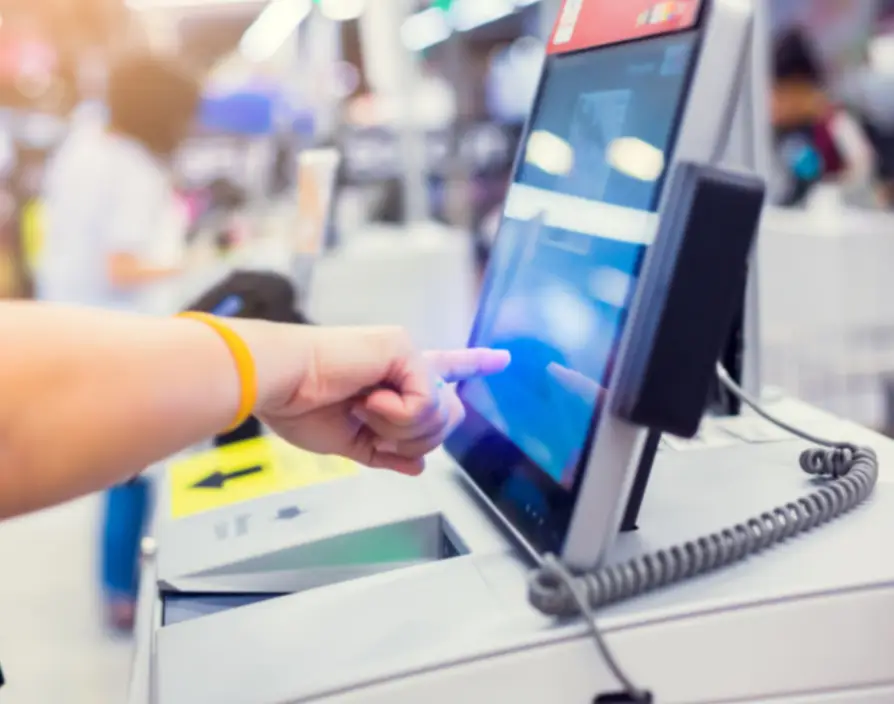It only seems like yesterday that self-checkout tills were considered the future of retail business across much of North America. Throughout many regions of Canada and the United States, supermarkets and other big stores were casting aside human cashiers in favour of this technology-led approach.
But not so fast: Just a few years later, and many store owners are beginning to reverse what appeared – at one stage – to be a one-way trend. A number of owners are citing theft, while others are recognising that many customers prefer the human touch when it comes to purchasing their groceries.
Only last month, Scott Savage, a franchise owner with Giant Tiger discount store, removed four self-checkout machines at his premises in Stratford, a town 90 kilometers west of Hamilton. He says, rather than theft, he made this change because many of his customers are seniors who dislike using the machines.
Christopher Andrews, a sociologist and author of numerous books on business, had his say on why some retail outlets are returning to the traditional, all-cashier format. Andrews, whose publications include ‘The Overworked Consumer (Self-Checkouts, Supermarkets, and the Do-It-Yourself Economy)’ said: “Stores anticipated that this technology would allow them to significantly reduce labour costs.
“But instead of cutting costs, some stores discovered that self-checkout actually hurt their bottom line, largely due to theft. I think they’re just losing so much money that it just becomes an economic liability.”
And Andrews, who is an associate professor at Drew University in New Jersey, explained that theft wasn’t the only reason for this sudden decision to backtrack. He believes staffing requirements is another reason why retailers are abandoning self-checkout.
These machines require attendants to help customers, while also keeping an eye on potential thieves. He added: “What they found was that actually they couldn’t eliminate a lot of the cashiers, because they needed the cashiers there, in part, to deter shoplifting.”
Self-checkouts were introduced by retailers as a means of reducing staffing costs, but it doesn’t seem to have worked out that way in practice. In 2020, Walmart started testing self-checkout tills in the United States and then in Canada.
But in recent months, this retail giant has begun removing many self-checkout machines, along with other chains such as Canadian discount store Giant Tiger. Founded in 1961, and with headquarters in Ottawa, Ontario; Giant Tiger has over 230 outlets across the country.
And Giant Tiger are certainly listening to their customers. One shopper, Leslie Clayton-Winget, told CBC News that she was delighted her local store in Stratford had opted to remove self-checkout machines. She said: “I like person-to-person contact. You can’t tell a machine to ‘Have a good day’.”
Self-checkout theft is a growing problem for many Canadian stores. Some have even begun checking the receipts of shoppers in an effort to try and prevent it, but this has led to a backlash from customers.
The Retail Council of Canada has admitted that self-checkout theft is increasing. The Council’s chief executive Diane Brisebois said: “Many people love self-checkout but, at the same time, if there is no control, we’ve seen that theft has grown.”
It has been noticed that organized gangs of thieves will pay for the cheaper items, but neglect to scan the pricey ones. She added: “They target merchandise that they know has high value on the street.”
President of Walmart, John Furner, told the TV channel ABC that they have removed self-checkout machines from locations where theft was highest. He stressed: “There are a few stores where we’ve made this decision.
“We want to make sure that the checkout process is accurate. Retail shrinkage is a cost. So enabling us to lower that cost, means we can keep prices down.” And Dollar General has taken away all of the machines in around 300 stores, while scaling back in thousands of others.
Their chief executive, Todd Vasos, admitted: “We believe there is truly no substitute for an employee presence. And this will have a positive impact on shrinkage.”
Yet retail expert and author, Christopher Andrews, believes it is not completely the death knell for these machines: “I think we’ll continue to see stores experiment. But I also think we’ll continue to see these sorts of unanticipated consequences.”








